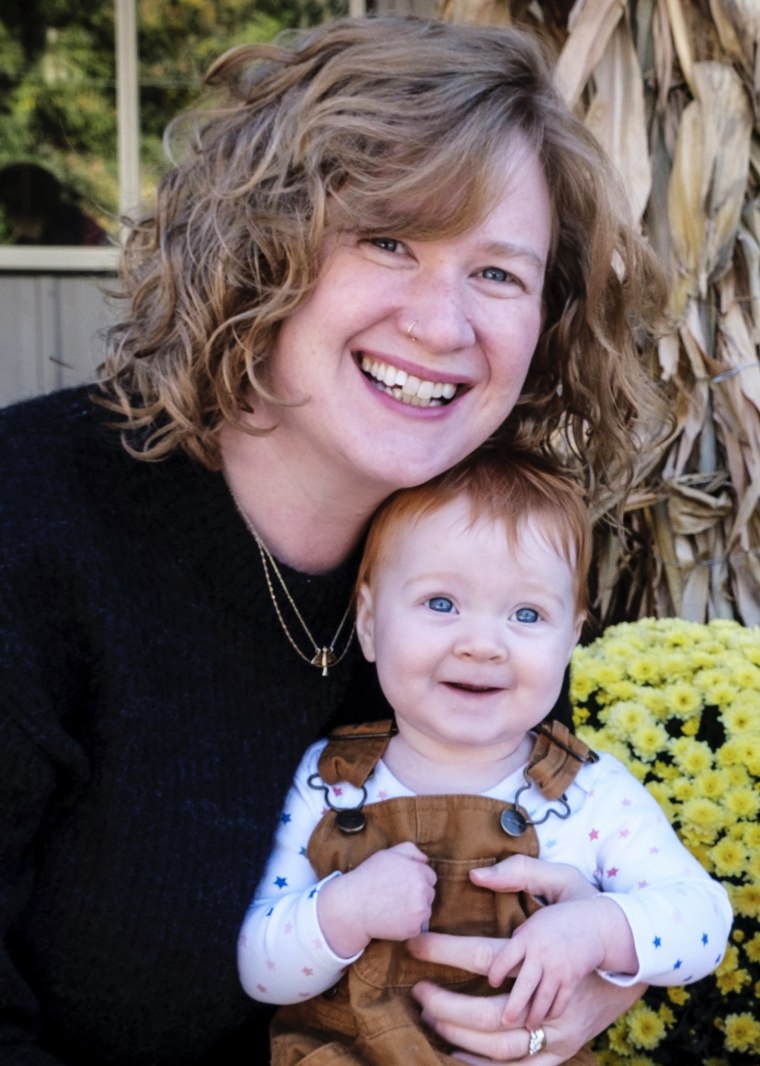WASHINGTON — Ellen Weber could shave off some of the more than $100,000 she owes in student loans if President Joe Biden’s debt relief plan was to ever take effect, but Republican officials in her home state of Missouri have worked hard to make sure that won’t happen.
Weber, 36, a therapist at a middle school just outside St. Louis, would be eligible for up to $10,000 of loan forgiveness under Biden’s proposal, which faces a showdown at the U.S. Supreme Court on Tuesday.
Her loan is serviced by the Missouri Higher Education Loan Authority, known as MOHELA, which could play an important role in the litigation.
The justices will analyze two different legal challenges to Biden’s plan, one of which involves Missouri. And part of the case will hinge on whether the state of Missouri, driven by Republican officials, has standing to challenge Biden’s proposal, given MOHELA’s role in servicing student loan debt and what it argues it would lose if loans are forgiven.
The state’s involvement doesn’t sit well with Weber, who believes that Republican state officials, including newly appointed Attorney General Andrew Bailey, haven’t considered the needs of state residents like her.
“To hear that the state is fighting against my interests and the interests of other people who would benefit from this is incredibly frustrating,” she said in an interview. Weber took out the loan so she could complete a master’s degree in social work. The payments she has made have not made a dent in the principal she owes, meaning her total debt is more now than it was a decade ago.
“It’s incredibly important we recognize the inherent unfairness of that system,” she said.

Most experts believe that if the Supreme Court finds that at least one of the challengers has standing (meaning the challenger can demonstrate that it would suffer harm from the proposed law), then the court’s 6-3 conservative majority would conclude that the program is unlawful.
“Standing is crucial,” said Ilya Somin, a professor at George Mason University’s Antonin Scalia Law School. Referring to the Biden administration’s legal arguments in defense of the proposal, he said it seems as if the government “has put most of its eggs in the standing basket,” as it understands that persuading the court that the program is lawful on any other grounds would be a tougher obstacle to overcome.
The court is hearing two cases, one brought by six states, including Missouri, and the other brought by two people, Myra Brown and Alexander Taylor, who hold student loan debt.
The challengers argue that the administration’s plan — announced by Biden in August and originally scheduled to take effect last fall — violates the Constitution and federal law, partly because it circumvents Congress, which they said has the power to create laws related to student loan forgiveness.
The program, which would allow eligible borrowers to cancel up to $20,000 in debt, has been blocked since the 8th U.S. Circuit Court of Appeals issued a temporary hold in October. The administration has since closed the application process. Holders of student loan debt currently do not have to make payments as part of Covid relief measures that will remain in effect until after the Supreme Court issues its ruling.
In any civil case, plaintiffs have to show they have standing by persuading the judge not only that they have been injured by the defendant’s actions but also that a favorable court ruling would redress that injury.
Of the various challengers, Missouri may have the best argument for standing. The state is harmed by the Biden plan because MOHELA would lose the revenue it earns from servicing the loans if the debts are forgiven, its lawyers argue. Missouri would also be directly harmed because MOHELA has an obligation to make certain payments to the state treasury to help fund capital projects for state universities, the lawyers say. A spokeswoman for Bailey, the attorney general, did not respond to a request for comment.
In court papers the state goes into great detail in describing how MOHELA is not a separate entity from the state. Lawyers argue, for example, that the agency was created by the Legislature and the governor appoints members of its board.
“As such, MOHELA is part of Missouri, and the state has standing to challenge actions that impair MOHELA’s finances,” the states argue in their brief.
Solicitor General Elizabeth Prelogar, representing the Biden administration, said in court papers that MOHELA is a distinct legal entity from the state of Missouri and therefore cannot be considered part of any analysis of whether the state itself has standing.
“Missouri may not now maintain that the State and MOHELA are one and the same merely because it believes that MOHELA has standing to challenge a policy the State opposes,” Prelogar wrote. She added that there is no evidence that MOHELA will face a significant drop in revenue or that the agency will not be able to meet its payment obligations to the state treasury.
Another brief filed by supporters of the program says MOHELA hasn’t made a payment to the state for a decade.
‘Financial services behemoth’
MOHELA has attracted scrutiny for its role in the case from Democratic lawmakers and groups that support Biden’s plan. The agency has strayed far beyond its original mandate and is now a “financial services behemoth” handling one out of every 10 dollars of outstanding student loan debt, according to the Student Borrower Protection Center, a nonprofit organization that advocates for student loan relief.
Persis Yu, the center’s deputy executive director, said MOHELA would earn money during the loan discharge process if Biden’s plan went into effect.
“There are several leaps and assumptions you have to make” to conclude that MOHELA has standing, she said.
MOHELA said in a letter last year that its executives were “not involved” with the decision of then-Attorney General Derek Schmidt to challenge Biden’s plan. Scott Giles, MOHELA’s executive director, did not respond to a request for comment.
In ruling for the states, the appeals court embraced the standing argument for MOHELA, saying there were reasons to conclude it is an arm of the state. Even if it isn’t, the harm to the state caused by a decline in MOHELA’s payments into the treasury for capital projects is enough to establish standing, the court concluded. The appeals court did not decide whether the other states — Arkansas, Iowa, Kansas, Nebraska and South Carolina — had standing.
Michael Dorf, a professor at Cornell Law School, said that although he expects the justices to debate standing on Tuesday, such questions rarely delay them if a majority wants to decide the legal merits, especially in an “ideologically fraught case” like student loans.
Major questions doctrine
If the justices conclude that MOHELA has standing, then they could decide the case based on a legal argument made by the challengers that the Supreme Court has recently embraced called the “major questions doctrine.” Under that theory, federal agencies cannot initiate sweeping new policies that have a significant economic impact without having express authorization from Congress.
The Biden administration says its authority comes from a 2003 law called the Higher Education Relief Opportunities for Students Act, known as the HEROES Act. The law states that the government can provide relief to recipients of student loans when there is a “national emergency.”
The major questions doctrine fits neatly with the conservative majority’s skepticism about broad assertions of federal power. The court cited it last year in blocking Biden’s Covid vaccination or test requirement for larger businesses and curbing the authority of the Environmental Protection Agency to limit carbon emissions from power plants. The challengers say the language in the HEROES Act is not specific enough to authorize a proposal as broad as Biden’s plan.
It is because of the conservative bloc’s stance on such issues that most court watchers believe the student loan program is likely to be invalidated if the justices conclude that MOHELA, or any of the other challengers, have standing.
“It’s clearly the most likely outcome,” Somin said.
Source: | This article originally belongs to Nbcnews.com










